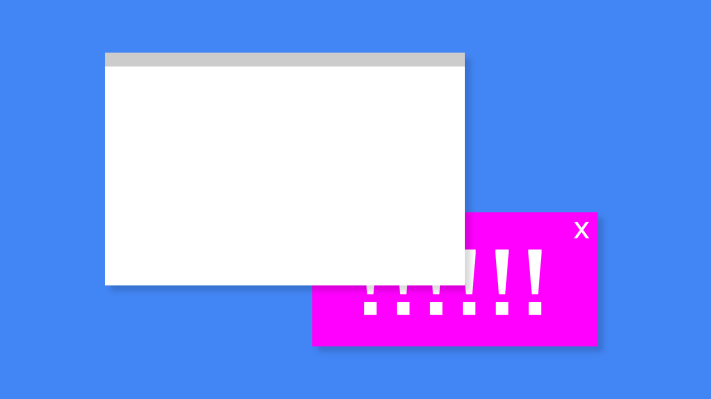Google today clarified a change to its ad policies, which have now been updated to include a ban on Google advertisements on any websites that utilize “pop-under” advertisements. These obnoxious, irritating and often spammy advertisements are those that load “under” your current window – meaning you don’t see them until you minimize your browser.
“We do not believe these ads provide a good user experience, and therefore are not suitable for Google ads,” the company explains in an announcement regarding the new policy.
The change means that Google ads cannot run on the pop-unders themselves, and that the website triggering this type of advertisement won’t be able to run Google ads, either.
Along with this, Google says it’s also no longer allowing its ads on web pages that appear as a pop-ups, in addition to the ad ban on pop-under pages.
The company already has other ad policies around pop-ups, noting that they cannot interfere with site navigation, change user preferences, initiate downloads, or distribute viruses (thankfully). Plus, publishers can’t place Google ads on any site with more than three pop-ups. However, publishers have to also be responsible for any ad networks or affiliates they have on their site which could use these methods.
The policy update is meant to discourage website owners from running user-unfriendly advertisements, and are a result of Google’s ongoing analysis of emerging trends, the company notes. It determined the change was necessary in order to “maintain a healthy ads ecosystem that benefits both publishers and advertisers,” says Google.
This is hardly the first time Google has refined the rules around ads. It sometimes takes measures to downrank misbehaving sites in search results, too, even if they’re not running AdSense ads.
For example, last summer, Google said it would downrank mobile sites that use pop-up and interstitials starting in January – a more heavy-handed means of getting publishers to change their evil ways, than simply updating ad policy, as it announced today.
